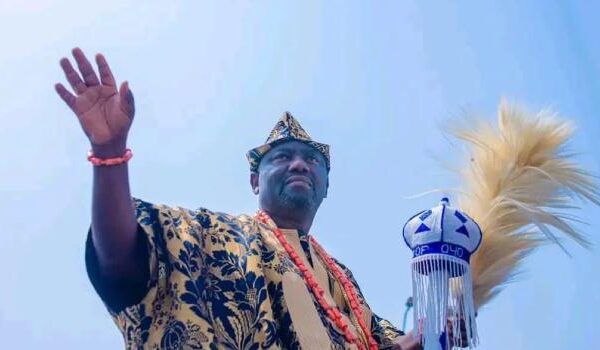First Lady Empowers South-West Midwives, Distributes Professional Kits, N50m Grant to Women Traders Elder Statesman and National Leader of the Afenifere, Pa Reuben Fasoranti has commended President Bola Ahmed Tinubu for his various efforts and actions at improving the country, Trek Africa Newspaper. He was speaking when the First Lady of Nigeria Senator Oluremi Tinubu paid the 98 year old, a visit at his Akure, Ondo State residence. He noted that the President had indeed surpassed his expectations and prayed for Gods continued guidance of the President. Pa Fasoranti also commended the First Lady for the support she continually gives the President through her Renewed Hope Initiative as she continues to take its dividends round the country. The First Lady, Senator Oluremi who noted that the visit was an informal one to convey the Presidents warm regards to a man she and the President considers a father figure is on the sideline of her 2-day visit to the State to hand over Professional Kits to Midwives in the South West Zone of Nigeria. She expressed her joy at how well the Elder Statesman is. Earlier Senator Oluremi Tinubu met with the over 60 Traditional Rulers in the State led by the Deji of Akure Kingdom, Oba Aladetoyinbo Aladelusi Ogunlade who stood in for the Chairman of the Council, Olowo of Owo. The traditional Rulers who were full of encomiums for President Bola Tinubu and the First Lady assured that they will take the message of the Renewed Hope Initiative on heightened testing for Tuberculosis, HIV/AIDS, prevention/ treatment of these diseases and end to stigmatization to all their subjects. The Ondo State Traditional Council also threw their weight behind the President for a second term in office. The First Lady’s train later proceeded to the Dome, in Akure where she formally handed over Professional Kits comprising of 10,000 scrubs and 10,000 crocs to midwives in the South West Geopolitical Zone of Nigeria. In her remarks of welcome the wife of the Ondo State Governor, Mrs Oluwaseun Aiyedatiwa thanked the First Lady for being a true mother especially as she has continually addressed the plight of women, youth and children. The Governor, Dr Lucky Aiyedatiwa pointed out that the various interventions of the President including the siting of the Airforce School in Akure, upgrade of the Adeyemi College of Education to a University of Education among others has greatly improved the lot of the citizens. In her keynote address, Senator Oluremi Tinubu applauded the frontline health workers adding that they should take training and retraining seriously so as to get better at their jobs. “This event is to complement the ongoing Federal Government retraining exercise for 120,000 frontline health workers nationwide. I am informed that 59,570 health workers have already completed their training and that is why the Renewed Hope Initiative (RHI) procured 60,000 branded scrubs and 60,000 pairs of crocs, as an incentive to encourage and support the tireless dedication of our Midwives”. “I commend the Coordinating Minister of Health and Social Welfare, Prof. Mohammed Ali Pate, CON, the Executive Director and CEO of the National Primary Health Care Development Agency (NPHCDA), Dr. Muyi Aina, and their entire workforce for their dedicated focus on improving healthcare delivery for our citizens as an important pillar of development, in line with the Renewed Hope Agenda of His Excellency, President Bola Ahmed Tinubu, GCFR”. “Since inception in 2023, the Renewed Hope Initiative (RHI) has provided targeted interventions in Agriculture, Economic Empowerment, Education, Health and Social Investment to improve the lives of families across Nigeria. RHI recognises that the demands of the health profession require not only skills and compassion, but also the right tools and kits to encourage our Midwives as they serve others. We thank you for all your good work”. Also at the event, the First Lady of Nigeria Senator Oluremi Tinubu gave a N50m (Fifty million Naira Grant) to the Wife of the Governor, Mrs Oluwaseun Aiyedatiwa for onward disbursement to 1,000 Women Petty Traders under the RHI Small Business Recapitalisation Program. Of the 1,000 women, 200 who are into selling fabrics also received 2 bales of the commodity to boost their trade. The distribution of Professional Kits to midwives in the South-West makes it the 5th Geopolitical Zone to benefit from the intervention by the Renewed Hope Initiative, RHI, an initiative of the First Lady of Nigeria, Senator Oluremi Tinubu.








